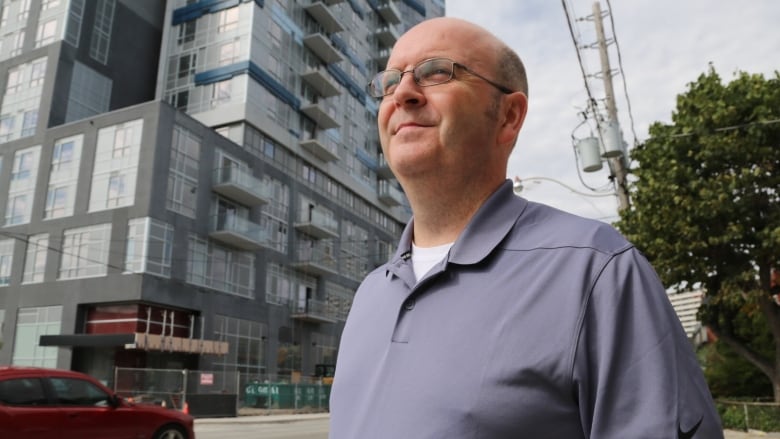CBC Toronto: Regent Park affordable housing lottery draws thousands — and highlights supply ‘crisis,’ advocates say
Posted October 2, 2018
‘You snooze, you lose,’ said one Toronto resident about month-long application period
Posted October 2, 2018
 Toronto residents hoping to find affordable housing could hit the jackpot again this week.
Toronto residents hoping to find affordable housing could hit the jackpot again this week.
The second housing lottery in Regent Park is wrapping up on Wednesday, and Toronto Community Housing (TCH) has already received more than 2,000 applications and counting — for just 75 units.
While another round of available units is welcome news to housing advocates, some say the lottery also speaks to the housing “crisis” in Toronto where huge demand far surpasses the available supply.
The application period opened on Sept. 4 for a mix of one, two, and three-bedroom units at 110 River St., a new multi-income high rise that will be ready in early 2019. Because the units are deemed “affordable,” not rent-geared-to-income, their rent is set at or below the average market value.
Applicants’ annual gross household income also can’t exceed four times a unit’s annual rent. The monthly rent for a one-bedroom, for instance, is $962, which means applicants can’t have an annual household income higher than $46,176.
At a similar lottery earlier this year, TCH spokesperson Daniele Gauvin said there were roughly 3,700 applications for 59 units elsewhere in Regent Park.
The corporation felt that first round was “effective,” she added.
‘You snooze, you lose’
But the numbers also highlight the disparity between those needing affordable housing and what’s available, said Greg Suttor, a senior researcher at the Wellesley Institute who focuses on housing policy.
“There’s such a huge number of households,” he said.
A few thousand applications in Regent Park stem from a population hoping to live in that particular area, Suttor added. “There’s probably equal numbers of people who’d love to find a unit like that in Willowdale or Richmond Hill or in Burlington or Milton or eastern Scarborough.”
Others see flaws in the process itself. Mark Richardson, a data analyst previously on the Toronto Planning Review Panel, said this lottery system is problematic, with just a month-long window for applications.
“You snooze, you lose,” Richardson said. “And most people don’t even know this lottery is happening.”
The small sign posted on 110 River St. doesn’t cut it for advertising, he added, saying he expected a bigger blitz from city staff and city council. “We need to be promoting this in the same way we’d promote any service.”
But both a city spokesperson and Gauvin said there was plenty of outreach throughout the month — from social media posts and website content, to information provided to roughly a thousand community partners, seniors organizations, and the tenants displaced by the recent Parliament Street fire.
Promotion was key because, as Gauvin noted, anyone who applied through the first lottery and didn’t make the cut has to reapply this time around because the units and qualifications change.
“For example, this time there are units specifically designated for seniors … and we’ve had great interest in applicants for those units,” she said.
Richardson said there should be a “better-structured pool system” where applicants don’t have to re-apply over and over, alongside more “aggressive” promotion from the city.
“If you don’t know how to use a computer, or you don’t follow the [city’s] web page or [Toronto Community Housing] — you’re clueless, and you miss an opportunity that is precious in a city that has so much backlog for housing,” echoed affordability advocate Alejandra Ruiz Vargas, ACORN’s East York representative.
While any new units on the market is beneficial, Ruiz Vargas said the bottom line is more housing stock needs to be built to meet the demand.
“Seventy-five units in a crisis like this? It’s a little light in a very dark place,” she said.
“We need more light.”
***
Article by Lauren Pelley for CBC News Toronto
